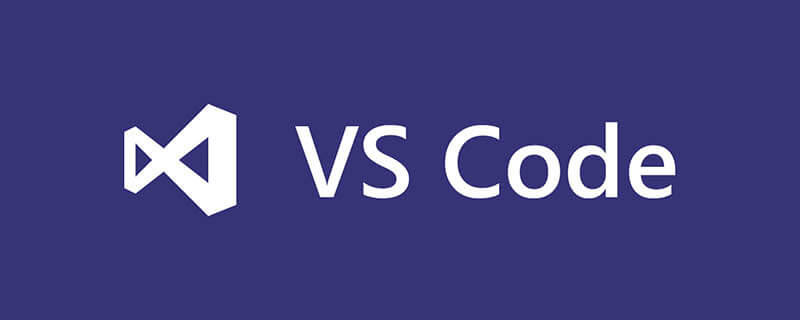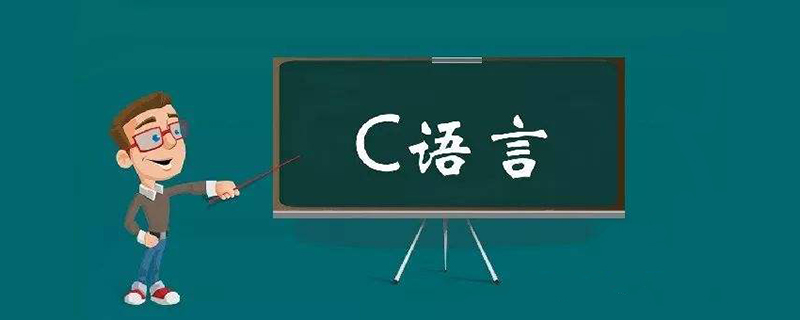 Backend Development
Backend Development C++
C++ In-depth understanding of C language pointers: pointer arithmetic and memory management
In-depth understanding of C language pointers: pointer arithmetic and memory management
In-depth understanding of C language pointers: pointer arithmetic and memory management
Introduction:
C language is a low-level language, one of its characteristics is Has the function of a pointer. Pointers are an important concept. They provide the ability to directly access memory and are very flexible and powerful. This article will delve into pointer arithmetic and memory management in C language, and help readers better understand through specific code examples.
Pointer arithmetic:
Pointer arithmetic refers to operating on memory addresses through pointers. In C language, pointers can perform four operations: addition, subtraction, increment and decrement.
The addition operation of pointers can be used to move the position of the pointer on the memory address. For example, assuming there is a pointer p pointing to an array of integers, we can access different elements in the array by performing addition operations on p. The specific example code is as follows:
int arr[5] = {1, 2, 3, 4, 5};
int *p = arr; // 这里p指向数组的第一个元素arr[0]
for (int i = 0; i < 5; i++) {
printf("%d ", *p);
p++; // p指向下一个元素,移动4个字节(int类型的大小)
}In the above code, we first define an integer array arr, and then define a pointer p pointing to the array. By incrementing p, the pointer p points to each element in the array in turn and prints out its value.
The subtraction operation of pointers can be used to calculate the number of elements between two pointers. For example, assuming there are two pointers p and q pointing to integer arrays, we can calculate the distance between them by subtracting p and q. The specific example code is as follows:
int arr[5] = {1, 2, 3, 4, 5};
int *p = &arr[0]; // p指向数组的第一个元素arr[0]
int *q = &arr[3]; // q指向数组的第四个元素arr[3]
int distance = q - p;
printf("The distance between p and q is %d
", distance);In the above code, we subtract p and q to get the distance between them to be 3, that is, the pointer p needs to move 3 elements to reach the point pointed to by the pointer q Location.
Increment operation and decrement operation refer to the operation of adding 1 or subtracting 1 to itself. These two operations are rarely used in actual development because they are usually used to traverse arrays, and the C language provides a more convenient way (such as the above-mentioned addition operation) to implement array traversal.
Memory management:
In addition to pointer operations, pointers also play an important role in C language, which is memory management.
Dynamic memory allocation refers to allocating and releasing memory space as needed when the program is running. In C language, memory is allocated through the malloc() function, and memory is released through the free() function. The specific example code is as follows:
int *p = malloc(sizeof(int)); // 分配一个int类型的内存空间
if (p != NULL) {
*p = 10; // 在分配的内存中存储数值10
printf("The value stored in p is %d
", *p);
free(p); // 释放内存
}In the above code, we call the malloc() function to allocate a memory space of type int, and then store the value 10 in the memory. Finally, the memory space is released through the free() function.
In addition to dynamic memory allocation, pointers can also be used to access and operate memory. For example, we can use pointers to access specific elements in a structure or array, or use pointers to modify the values of parameters passed in a function. These are very common uses of pointers in C language.
Conclusion:
Through the introduction of this article, I believe that readers will have a deeper understanding of pointer operations and memory management in C language. The arithmetic function of pointers gives the program a more flexible ability to operate memory, and memory management is an important factor in ensuring that the program runs correctly and efficiently. Pointers are a very important and complex concept in C language, which require continuous practice and exploration to better understand and master.
I hope this article can provide readers with some inspiration on pointer arithmetic and memory management, and help readers apply and use this knowledge in actual programming. I hope readers can continue to make progress in the learning and practice of C language and achieve better programming results.
The above is the detailed content of In-depth understanding of C language pointers: pointer arithmetic and memory management. For more information, please follow other related articles on the PHP Chinese website!
 (超详细)VScode中配置C语言环境的方法Dec 05, 2022 pm 07:05 PM
(超详细)VScode中配置C语言环境的方法Dec 05, 2022 pm 07:05 PMVScode中怎么配置C语言环境?下面本篇文章给大家介绍一下VScode配置C语言环境的方法(超详细),希望对大家有所帮助!
 c语言中node是什么意思Jul 06, 2022 pm 03:51 PM
c语言中node是什么意思Jul 06, 2022 pm 03:51 PM在C语言中,node是用于定义链表结点的名称,通常在数据结构中用作结点的类型名,语法为“struct Node{...};”;结构和类在定义出名称以后,直接用该名称就可以定义对象,C语言中还存在“Node * a”和“Node* &a”。
 c语言开根号运算符是什么Mar 06, 2023 pm 02:39 PM
c语言开根号运算符是什么Mar 06, 2023 pm 02:39 PM在c语言中,没有开根号运算符,开根号使用的是内置函数“sqrt()”,使用语法“sqrt(数值x)”;例如“sqrt(4)”,就是对4进行平方根运算,结果为2。sqrt()是c语言内置的开根号运算函数,其运算结果是函数变量的算术平方根;该函数既不能运算负数值,也不能输出虚数结果。
 c语言怎么将数字转换成字符串Jan 04, 2023 pm 03:20 PM
c语言怎么将数字转换成字符串Jan 04, 2023 pm 03:20 PMc语言将数字转换成字符串的方法:1、ascii码操作,在原数字的基础上加“0x30”,语法“数字+0x30”,会存储数字对应的字符ascii码;2、使用itoa(),可以把整型数转换成字符串,语法“itoa(number1,string,数字);”;3、使用sprintf(),可以能够根据指定的需求,格式化内容,存储至指针指向的字符串。
 c语言数组如何初始化Jan 04, 2023 pm 03:36 PM
c语言数组如何初始化Jan 04, 2023 pm 03:36 PMC语言数组初始化的三种方式:1、在定义时直接赋值,语法“数据类型 arrayName[index] = {值};”;2、利用for循环初始化,语法“for (int i=0;i<3;i++) {arr[i] = i;}”;3、使用memset()函数初始化,语法“memset(arr, 0, sizeof(int) * 3)”。
 c语言合法标识符的要求是什么Aug 27, 2020 pm 01:47 PM
c语言合法标识符的要求是什么Aug 27, 2020 pm 01:47 PMc语言合法标识符的要求是:1、标识符只能由字母(A~Z, a~z)、数字(0~9)和下划线(_)组成;2、第一个字符必须是字母或下划线,不能是数字;3、标识符中的大小写字母是有区别的,代表不同含义;4、标识符不能是关键字。
 c语言中源文件编译后生成什么文件Nov 23, 2022 pm 07:44 PM
c语言中源文件编译后生成什么文件Nov 23, 2022 pm 07:44 PMc语言编译后生成“.OBJ”的二进制文件(目标文件)。在C语言中,源程序(.c文件)经过编译程序编译之后,会生成一个后缀为“.OBJ”的二进制文件(称为目标文件);最后还要由称为“连接程序”(Link)的软件,把此“.OBJ”文件与c语言提供的各种库函数连接在一起,生成一个后缀“.EXE”的可执行文件。
 c语言怎么计算n的阶乘Jan 04, 2023 pm 03:18 PM
c语言怎么计算n的阶乘Jan 04, 2023 pm 03:18 PMc语言计算n的阶乘的方法:1、通过for循环计算阶乘,代码如“for (i = 1; i <= n; i++){fact *= i;}”;2、通过while循环计算阶乘,代码如“while (i <= n){fact *= i;i++;}”;3、通过递归方式计算阶乘,代码如“ int Fact(int n){int res = n;if (n > 1)res...”。


Hot AI Tools

Undresser.AI Undress
AI-powered app for creating realistic nude photos

AI Clothes Remover
Online AI tool for removing clothes from photos.

Undress AI Tool
Undress images for free

Clothoff.io
AI clothes remover

AI Hentai Generator
Generate AI Hentai for free.

Hot Article

Hot Tools

SublimeText3 Mac version
God-level code editing software (SublimeText3)

SublimeText3 Linux new version
SublimeText3 Linux latest version

SecLists
SecLists is the ultimate security tester's companion. It is a collection of various types of lists that are frequently used during security assessments, all in one place. SecLists helps make security testing more efficient and productive by conveniently providing all the lists a security tester might need. List types include usernames, passwords, URLs, fuzzing payloads, sensitive data patterns, web shells, and more. The tester can simply pull this repository onto a new test machine and he will have access to every type of list he needs.

WebStorm Mac version
Useful JavaScript development tools

SublimeText3 English version
Recommended: Win version, supports code prompts!





